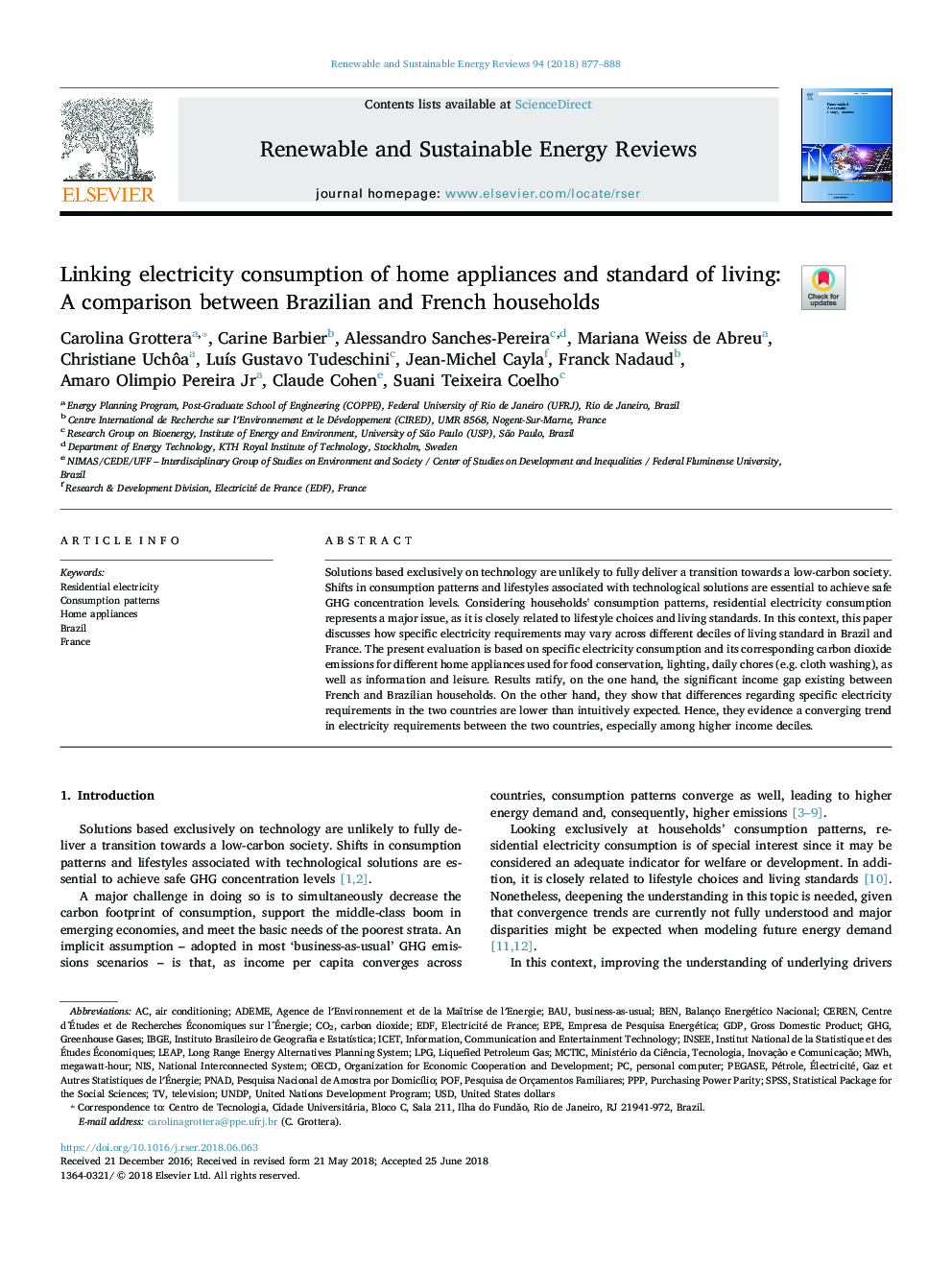| Article ID | Journal | Published Year | Pages | File Type |
|---|---|---|---|---|
| 8110561 | Renewable and Sustainable Energy Reviews | 2018 | 12 Pages |
Abstract
Solutions based exclusively on technology are unlikely to fully deliver a transition towards a low-carbon society. Shifts in consumption patterns and lifestyles associated with technological solutions are essential to achieve safe GHG concentration levels. Considering households' consumption patterns, residential electricity consumption represents a major issue, as it is closely related to lifestyle choices and living standards. In this context, this paper discusses how specific electricity requirements may vary across different deciles of living standard in Brazil and France. The present evaluation is based on specific electricity consumption and its corresponding carbon dioxide emissions for different home appliances used for food conservation, lighting, daily chores (e.g. cloth washing), as well as information and leisure. Results ratify, on the one hand, the significant income gap existing between French and Brazilian households. On the other hand, they show that differences regarding specific electricity requirements in the two countries are lower than intuitively expected. Hence, they evidence a converging trend in electricity requirements between the two countries, especially among higher income deciles.
Keywords
LPGÉlectricité de FrancePNAdADEMEInstitut national de la statistique et des études économiquesUNDPmwhINSEEIBGEEDFEPELEAPPOFBENOECDSPSSGHGPPPBaUNiSConsumption patternspurchasing power parityBrazilResidential electricityUnited Nations Development ProgramStatistical Package for the Social SciencesTelevisionAir conditioningGross domestic productGDPUnited States dollarsUSDCarbon dioxideOrganization for Economic Cooperation and DevelopmentFranceHome appliancesMegawatt-hourBusiness-As-Usualpersonal computerCO2liquefied petroleum gasGreenhouse gases
Related Topics
Physical Sciences and Engineering
Energy
Renewable Energy, Sustainability and the Environment
Authors
Carolina Grottera, Carine Barbier, Alessandro Sanches-Pereira, Mariana Weiss de Abreu, Christiane Uchôa, LuÃs Gustavo Tudeschini, Jean-Michel Cayla, Franck Nadaud, Amaro Olimpio Pereira Jr, Claude Cohen, Suani Teixeira Coelho,
